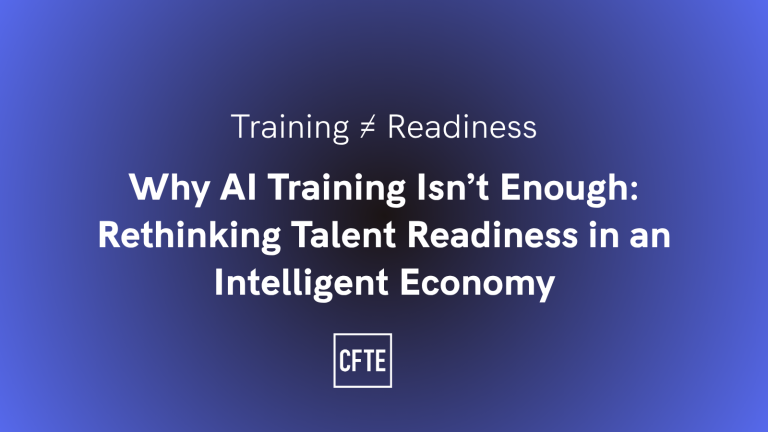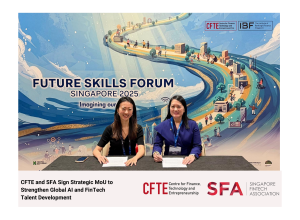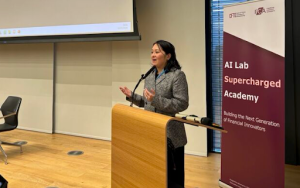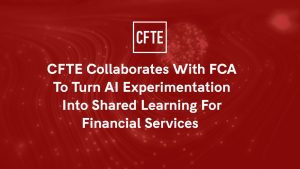As AI becomes embedded into every system, workflow, and decision point, the default response from organisations has been clear:
“Learn prompting.”
From national skills campaigns to AI bootcamps and internal courses, AI literacy is rising fast. That’s a positive shift. But beneath this mobilisation lies a deeper issue:
Training ≠ Readiness.
Despite the millions of hours spent learning tools, many professionals remain unprepared for the structural transformation that AI is bringing to work, decision-making, and value creation.
Surface-Level Progress, Systemic Lag
In CFTE’s whitepaper The AI-fication of Talents, we explore why current AI training efforts often plateau. Many initiatives focus on short-term skill acquisition — how to use ChatGPT, integrate Copilot, or automate a task.
But these don’t address the deeper question:
What does it mean to create value in a world of intelligent systems?
In most cases, workers are being trained without their institutions redesigning the systems they operate in. That’s like teaching someone to fly a drone — while keeping them in a paper map air traffic system.
From Skills to Strategic Readiness
CFTE defines true AI readiness as a combination of three integrated capabilities:
- Domain expertise — Grounding decisions in real-world value
- Strategic AI fluency — Using AI for leverage, not just automation
- Future-proofing skills — Systems thinking, adaptability, and creative problem-solving
These go beyond tactical training. They shape how individuals work, lead, and adapt in evolving environments.
The highest-performing professionals aren’t just efficient — they’re architects of workflows built for intelligence.
Why It Matters for Organisations
Organisations that continue to treat AI as a productivity layer — rather than a strategic layer — risk what CFTE calls “strategic drift.”
Tool training becomes obsolete faster than it can be updated. And professionals grow anxious, sensing that what they’re learning may not actually protect their relevance.
Instead, institutions must:
- Embed AI-readiness into core talent systems
- Shift from tool training to capability architecture
- Align AI efforts with decision-making, governance, and real-world impact
What’s at Stake
In an exponential environment, the cost of delay is not just missed growth — it’s compounded irrelevance.
Organisations that don’t evolve their people systems will find themselves operating in a future with talent models built for the past.
Those who act early will do more than adapt — they’ll define what comes next.
Download the Full Report
CFTE’s whitepaper, The AI-fication of Talents, offers strategic guidance, global frameworks, and actionable models to rethink talent in the age of AI.
It’s designed for policymakers, L&D leaders, and decision-makers across finance, technology, government, and education.




